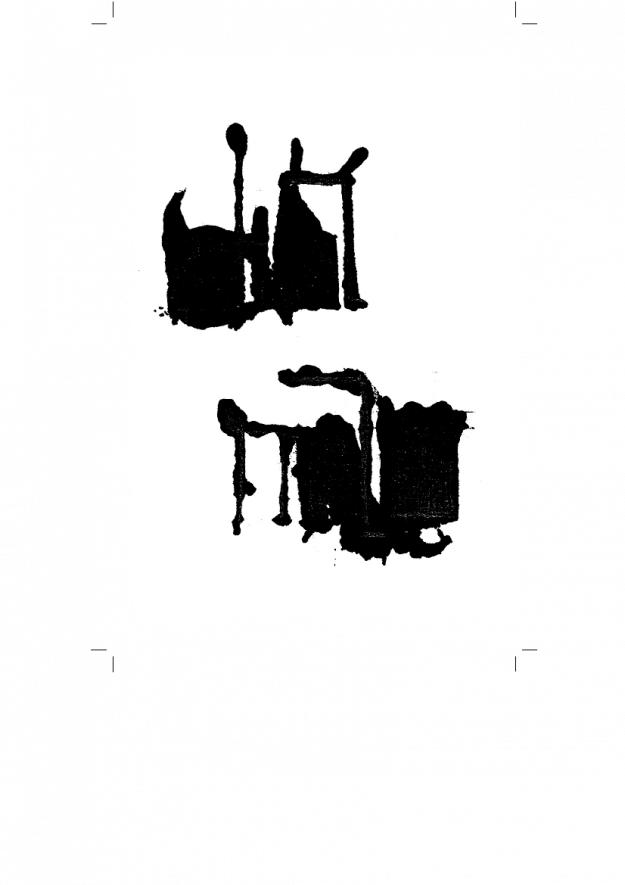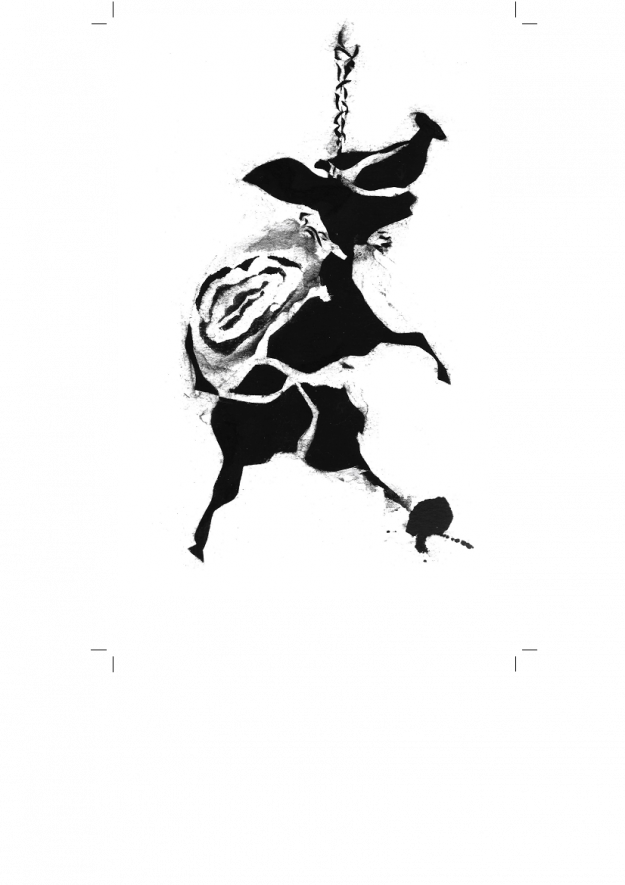
at an ecopoetry workshop I was invited to say something about this poem as ecopoem. Here is what I said:[1]
this poem is a composition about/with killing and eating animals and the violence inherent to human and family relationships. It is also about tenderness.
It deals with the killing of pigs in Portugal done in traditional ways, not in slaughterhouses where animals that are industrially raised – the actual term is produced– are killed.
I based it on my experiences during childhood and adolescence with taking part in killing pigs and cutting them; preparing sausages, and in all the processes that happen after the animal is dead.
I used some specific vocabulary of the Center region of Portugal, where I am from, for names of tools, body parts of pigs, gestures, plants, food. This is the area of Portugal where almost all the meat that is eaten in the country is produced – pig, chicken, turkey and others.
Lack of regulation on waste waters has turned the river Lis that crosses the region in one of the most polluted rivers of Portugal from wastewater coming from animal production but also from leather and grain production units.[2]
This is a long poem created by several sections that can be read separately but that work better in relation. I mostly use verbs. Sometimes verbs as adjectives and verbs as nouns. This I learned, as translator and researcher, from North American poets as Brenda Hillman; Evelyn Reilly; Allison Cobb; John Cage; Gary Snyder; Michael McClure; Charles Olson; Susan Howe.[3]
Vegan ecofeminism is important as well – Carol J. Adams’ The Sexual Politics of Meat – for the distinction between corpse/cadaver and meat – which is a cultural construction operated by separation and differentiation:
to cut bodies into meat to cut the word
verb as action
I also wanted to work with rhythm and sound, so I use repetitions. Hopefully these create, through interrelations within the poem, sets of frequencies that distribute the action of cutting in long time frames: from childhood till today.
The title Dia do Não [Day of No] refers to the day before the killing in which the pig has no water and no food:
a time and space of negativity
The poem is accompanied by images by the Portuguese artist André Alves. Images and words follow different directions:
the text starts from the whole body and ends with the cut pieces; from concrete to abstract; the image from abstract parts to the whole body. I have Rita Barreira to thank for this idea as well as for suggesting working with André.
I consider this an ecopoem because by engaging the cultural constructions of animals as non-others in the Center region it brings forth the environmental history of animal production in this area. The poem entangles culture and nature; flesh meat tendons muscles smiles love cross between pigs and humans, knifes separate, as Evelyn Reilly asks in Echolocation: “And why should our bodies end at our skin?”
Dia do Não was published as a full-length book in Portugal by Douda Correria in 2018. Some sections have been published at: Revista Inefável 15 (online). Other sections are forthcoming in the Ibero-American anthology Futuros Multiespecie edited by Azucena Castro for Bartlebooth (in press); and the Brazilian, African, and
Portuguese ecopoetry anthology O Livro do Verso Vivo (in press), edited by Thássio Ferreira and Maurício Vieira.
[1] The reading took place during the Ecopoetry Workshop at the #APHELEIA 2023 seminar on Adaptation and Transformation: Community-based Practices in Mação, Portugal. It was organized by BRIDGES UNESCO Sustainability Science Coalition. Poets attending: Esthela Calderon (Nicaragua), Juan Carlos Galeano (Colombia & USA), Nuno Marques (Portugal), José Manuel Marrero Henríquez (Canary Islands), Bernard Quetchenbach (USA) and Catarina Santiago Costa (Portugal).
[2] See https://csg.rc.iseg.ulisboa.pt/wp-content/uploads/2020/02/E-Book_PortugalAmbienteEmMovimento.pdf
[3] I discuss particulars of form in North American ecopoetry here: http://urn.kb.se/resolve?urn=urn:nbn:se:kth:diva-298467




No comments yet. Be the first to comment!